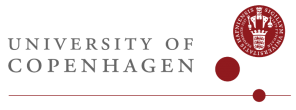Building a roadmap for sustainable management of commercial medicinal plants in Nepal
Significant stakeholders in Nepali medicinal supply chains have issued The Jadibuti Declaration to 2030, highlighting the current vulnerabilities of unmanaged species, the potential for domestic growth and the development of a Roadmap for Sustainable Management of Commercial Medicinal and Aromatic Plants and Fungi of Nepal.
Jadi Buti translates from Nepali as ‘herb or medicinal plant.’ Jadi Buti oils and natural remedies form the basis for one of the oldest medical systems known as Ayurveda, based on ancient writings that rely on a “natural” and holistic approach to physical and mental health.
Medicinal and aromatic plants are an essential income for high-altitude communities in the Himalayas
Herbal remedies are dramatically growing in demand. In Nepal, as many as 300 medicinal and aromatic plant species and fungi are traded annually in tens of thousands of tons worth millions of US dollars. Species like Jatamansi Nardostachys jatamansi are used for incense. Among others, Kutki Neopicrorhiza scrophulariiflora and Banlasun Fritillaria cirrhosa, can be found in herbal medicines, particularly within Ayurvedic and Traditional Chinese therapies.
However, past and recent attempts at promoting sustainable management in Nepal have not sufficiently ensured sustainable harvesting, leaving species vulnerable to commercial harvesting and threatening rural household incomes, processor supplies and jobs, and government revenues.
Given the importance of these species for local communities and national economies, it is critical that Roadmaps like this lead to management that addresses local challenges and is embedded in national and regional frameworks that enable governments to meet international targets like those contained in the Kunming-Montreal Global Biodiversity Framework.”
Cara Flowers, TRAFFIC’s Sustainable Supply Chain Manager
Interview with Ramila Bohara: read one woman’s explanation of how important the trade in plants and fungi is for her family's income after the untimely loss of her husband.
Roadmap for Sustainable Management of Commercial Medicinal and Aromatic Plants and Fungi of Nepal
Through a collaborative initiative, The Himalayan Plants for People project partners at a workshop in Kathmandu purposefully brought together stakeholders from different areas of the Nepalese supply chain to identify, compare and rank opportunities and stumbling blocks in reaching sustainable management of commercial medicinal plants in Nepal. From these deliberations, there was consensus on engaging:
Regional institutions and coordination for a sustainable wild plant trade
Improved cultivation techniques and incentives like tax exemptions to reduce overharvesting and habitat destruction
Comprehensive high altitude management, including simple tasks like seed dispersal to enhanced resource monitoring and control
Sustainability certification and in-country processing to help increase the socio-enviro and monetary value, exportability and international marketing of products
National policy and institutional changes for the sustainable wild harvest of vulnerable species
We have moved beyond speculation; all stakeholders need to act now to ensure sustainable trade. Through a structured approach to activities and investments, the roadmap provides the impetus for stakeholders to coordinate renewed actions to the benefit of species, actors, the industry, and Nepal.”
Carston Smith-Hall, Professor, University of Copenhagen, Department of Food and Resource Economics and lead author of The Roadmap

The Jadibuti Declaration
At the end of the workshop, the participants, from harvesters, traders, processors, civil society, university and other researchers to government policymakers, agreed to prioritise evidence and experiences from all stakeholders. Through the Jadibuti Declaration, they’ve confirmed their alliance on collaborative cross-supply chain approaches.
“The conclusions from this workshop will give us confidence in the future of this sector.” Govinda Ghimire, a participant at the workshop representing the Export Promoters Association of Nepal.
Dr Bhishma Subedi, the Executive Director of ANSAB who has a remarkable resumé in agro-forestry in Asia, shared his expert opinions on the economic aspects of Nepalese medicinal plants and recognised that “This workshop has added energy to all stakeholders, ranging from harvesters in Jumla to the government authority. We are very proud to lead this work.”
Journal Paper released this week
Thousands of wild harvested plant species are traded globally, yet, for most species, there isn’t cohesive or standardised data on harvested amounts or the status of plant populations, especially at national levels. So how can the sustainability be assured?
Using the Himalayan plant Jatamansi as a case study, Carston Smith-Hall and, amongst others, TRAFFIC’s Anastasiya Timoshyna, present a data-integration approach specifying what ecological and trade data is required to develop sustainability estimates.
”We hope that this publication contributes to practical methods of establishing sustainable harvesting quantities and methods, including informing CITES Non-Detriment Finding processes, to ensure species like Nardostachys jatamansi can be traded sustainably into the future, benefitting people and landscapes,” said Anastasiya Timoshyna, TRAFFIC’s Director of Strategy, Programme, and Impact.
It was this understanding that culminated in a workshop convened by The University of Copenhagen, TRAFFIC, ANSAB and their partners in Kathmandu, together with the stakeholders developed the outline for the Roadmap.
About the Darwin Initiative

Funded by the UK Government through the Darwin Initiative.
The Darwin Initiative is a UK government programme with a focus on biodiversity projects.
About Asia Network for Sustainable Agriculture and Bioresources (ANSAB)

Established in 1992, ANSAB has a vision of rural South Asia built on rich biodiversity and prosperous communities. This vision includes rich, healthy and productive ecosystems actively managed and sustainably used by formerly poor local communities. It also features adaptive people and resilient ecosystems able to cope with global climate change. Generate and implement community-based, enterprise-oriented solutions that conserve biodiversity and improve the livelihoods of the poorest of the poor while bolstering national economic development and addressing climate change is the mission of ANSAB.
ANSAB has implemented conservation and development programmes in more than 30 districts of Nepal and provided policy inputs and services to the government and development partners in seven Asian countries. ANSAB has introduced FSC certification in Nepal, supported enterprises in achieving organic and wildlife-friendly certification, supported NTFPs collector groups and producer enterprises for their management practices complying with FairWild standards, and led successful on-the ground implementation of the UKAID funded Darwin Initiative project 25-018. After the successful implementation of the project 25-018, UKAID funded Darwin Initiative program further provided the project 28-026 for the upscaling of the successes.
About University of Copenhagen

About Oxford Martin School

The Oxford Martin School at the University of Oxford is a world-leading centre of pioneering research that addresses global challenges.
About FairWild

The increasing demand for wild plants—as ingredients for food, cosmetics, well-being and medicinal products—poses major ecological and social challenges. The pressure on potentially vulnerable plant species can endanger local ecosystems and the livelihoods of collectors, who often belong to the poorest social groups in the countries of origin.
As a response to these concerns, the FairWild Foundation is working with partners worldwide to improve the conservation, management and sustainable use of wild plants in trade, as well as the livelihoods of rural harvesters involved in wild collection. TRAFFIC has supported the development of the FairWild Standard, and now hosts the organization’s Secretariat under a partnership agreement.





